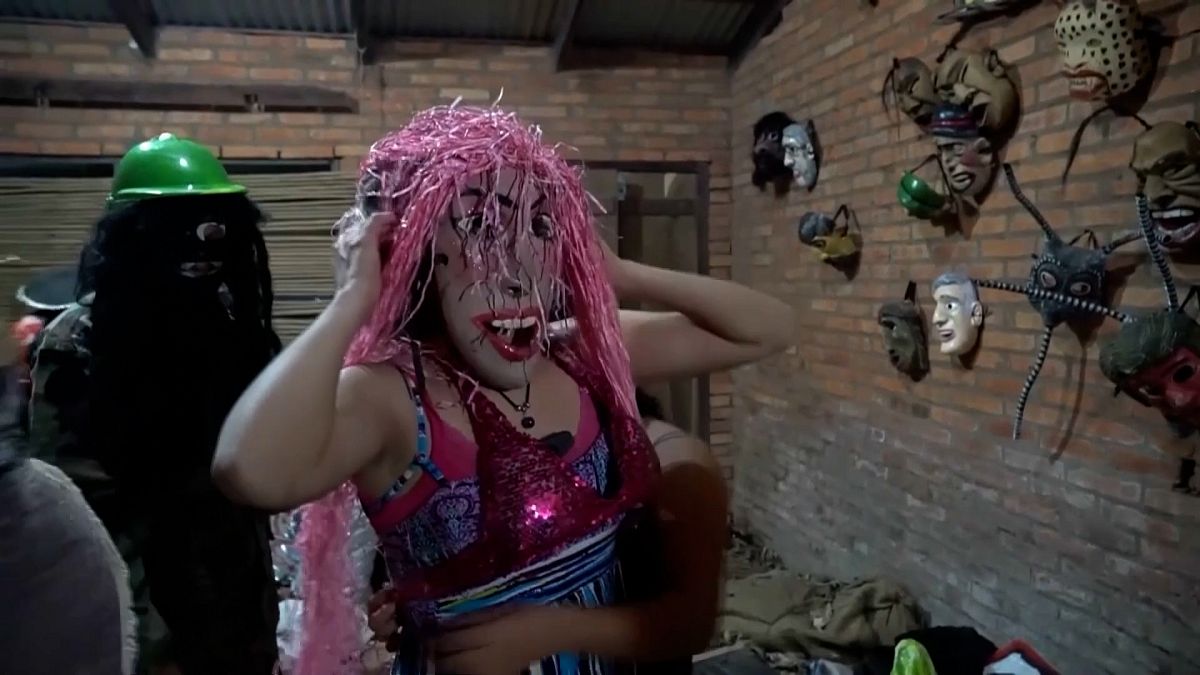
"The festival honours Saints Peter and Paul but also blends Catholic rituals with Indigenous and African traditions, creating a unique cultural expression that highlights community identity."
"Men dressed in banana leaves as 'Guaycurú' figures chase children through the streets, who defend themselves with burning straw, adding a playful yet intense atmosphere to the celebrations."
"Masks held during the festivities serve to depict animals or social archetypes, carrying deep symbolism rooted in colonial history and reflecting the community's diverse heritage."
"The Kamba mask, dating back to the 17th century, is a significant representation of the fusion between Indigenous and African cultures, showcasing the area's rich historical context."
The festival honors Saints Peter and Paul, merging Catholic rituals with Indigenous and African traditions. A key feature includes men dressed as 'Guaycurú' figures chasing children, integrating playful and intense elements. Masks play a vital role, depicting animals or social archetypes while embodying significant historical symbolism. The Kamba mask, originating in the 17th century, highlights the fusion of Indigenous and African cultures, emphasizing the festival's roots. Community members dedicate months to preparation, gathering materials and crafting masks, demonstrating their commitment to this cultural celebration as a living tradition.
Read at euronews
Unable to calculate read time
Collection
[
|
...
]